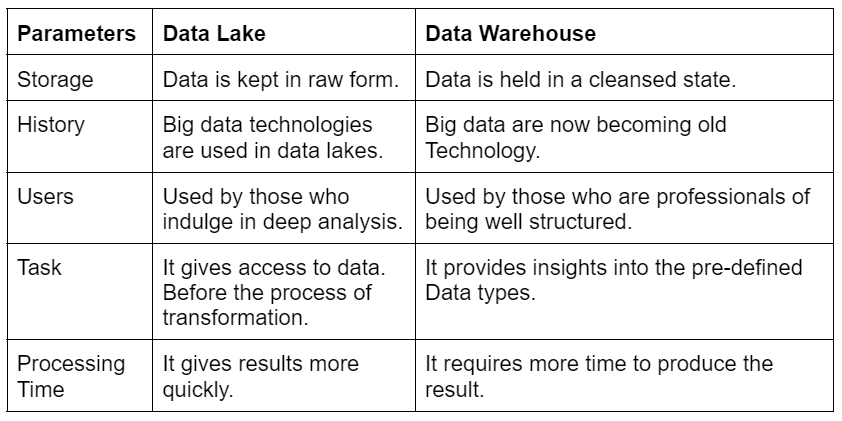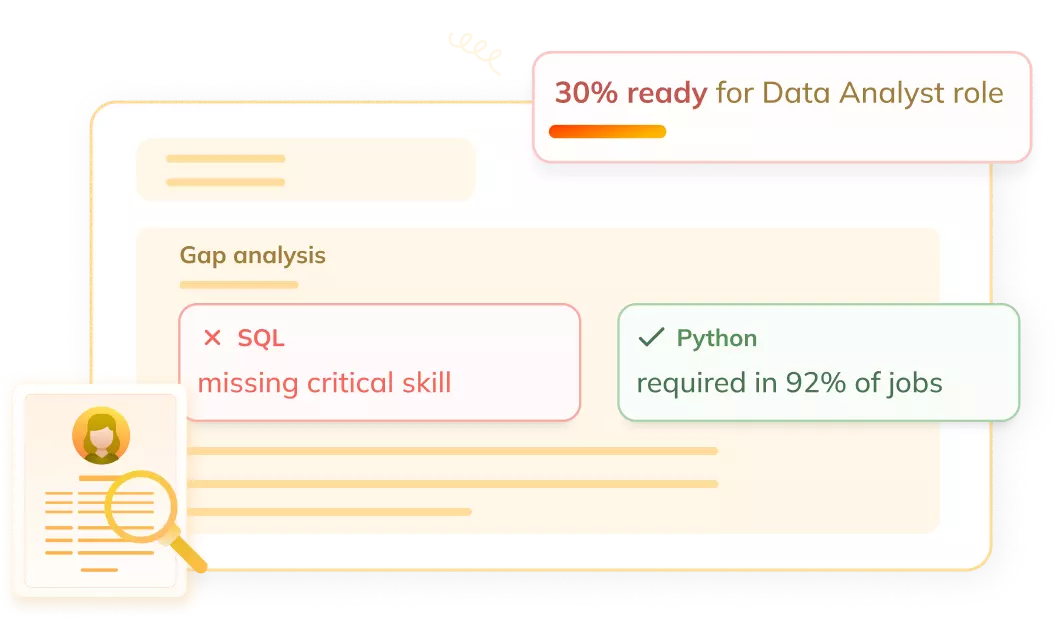What is a Data Warehouse
Data Warehouse is a mixture of technologies and components for the use of data in a strategic way. It stores and manages data from various sources, which provides meaningful business insight. It contains electronic storage of a large amount of information designed to query and analyze transaction processing. In other words, it is a process of transforming data into information.
Data Lake Concept
A Data Lake is a large size repository that holds a large amount of data in its native format until it is needed. Every element in a Data Lake has a unique identifier and is tagged with extended metadata tags.
Data Warehouse Concept
Data Warehouse helps us store the data in files or folders, which allows the organization uses the data to make strategic decisions. This storage system provides a multi-dimensional view of data in an atomic way.
Data Lake Characteristics
Data Lakes is a container that stores large amounts of structured, semi-structured, and unstructured data. They consist of everything from relational data to JSON documents to PDFs to audible files.
The primary users of Data Lake can vary based on the data structure. A business analyst will be able to take the help when the data is more structured.
The flexible nature of the data lakes helps a business analyst look for unexpected patterns and insights.
Examples
- AWS S3
- Azure Data Lake Storage Gen2
- Google Cloud Storage
- MongoDB Atlas Data Lake
- AWS Athena
Data Warehouse Characteristics
Data warehouse stores large amounts of current and historical data from various sources. They consist of raw ingested data to highly cleansed and filtered data. A data warehouse typically has a pre-defined and fixed relational schema.
Some data warehouses also support semi-structured data.
Example
- Amazon Redshift
- Google BigQuery
- IBM Db2 Warehouse
- Microsoft Azure Synapse
- Snowflake
Difference between Data Lake and Data Warehouse

FAQs
-
What is a Data Lake?
A data lake is an unstructured repository that consists of unprocessed data. It stores the data without giving any hierarchy or organization.
-
Why do you need a data warehouse?
In order to make a ton of data accessible in one place, we need a data warehouse. It divides the data, which will have standard formats, common keys, etc.
-
What are the requirements for a data warehouse?
Some warehouses are managing software solutions in inventory management software. It is mainly oriented to aspects of warehouse management.
Conclusion
In this article, we have covered the Data Lakes and Data Warehouse. We briefly introduced these topics. We also explained these concepts about Data Lakes and Data Warehouse. We also discussed their characteristics along with their examples. We discussed the difference between them too. We hope this blog might have helped you enhance your knowledge of Data Lakes and Data Warehouse. If you want to learn more about such topics, please visit Data Base Management System.
We hope that this blog might have helped you in enhancing your knowledge. If you liked this article, please give it a thumbs up, which might help me and other ninjas grow.
"Happy Coding!"





